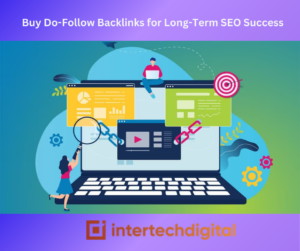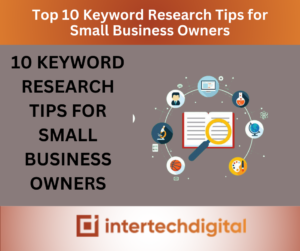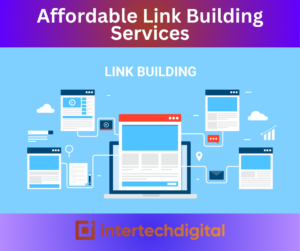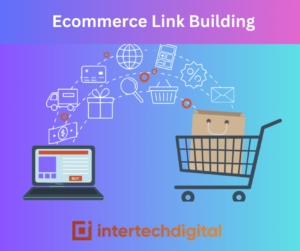In the highly competitive online retail industry, success in an ecommerce business depends on product quality, customer service, and how visible its website is. Therefore, one of the most effective SEO strategies for achieving this visibility is through ecommerce link building.
Effective link building for an ecommerce website can significantly boost your search engine rankings, drive targeted traffic, and increase sales. In this in-depth guide, we will examine different link building strategies for ecommerce, discuss advanced ecommerce link building techniques and give you practical tips to help you improve your online presence.
Understanding the Importance of Ecommerce Link Building
What is Link Building?
Link building is a process where hyperlinks are generated from other websites linked to yours. These hyperlinks are commonly known as “backlinks.” They act as votes of confidence from one site to another. Search engines can sense that your ecommerce site has been linked to many reputable sites, which means it is reliable and authoritative. Consequently, it will have higher rankings among search engines, which might result in increased organic traffic, leading to more direct sales.
Link building for e commerce websites differs from traditional approaches in that it often requires a more focused strategy. It involves optimizing numerous product pages, category pages, user experience, and search engine visibility.
Why Link Building Matters for Ecommerce
Standing out in a crowded ecommerce landscape matters. Here’s what the right approach to link-building can do for your website:
Enhanced Domain Authority: Increasing high quality backlinks improve your domain authority scores, which Google uses when ranking websites.
Higher Search Engine Rankings: Another critical factor in Google’s algorithm is the quality of the backlinks pointing to a particular page on a given domain. Thus, good Ecommerce Link Building usually raise SERP positions.
Increased Organic Traffic: Greater organic traffic arises when you enhance your visibility by improving rankings.
Improved Brand Visibility and Credibility: Getting links from well-regarded sites bolsters your brand’s credibility and trustworthiness with consumers.
Competitive Advantage: In a crowded market, advanced ecommerce link building approaches can give you an upper hand over your business competitors by positioning your website as the ultimate gateway for products or information.
Identifying Link Worthy Content for Ecommerce
Product Pages and Category Pages
Your product and category pages are the backbone of your ecommerce site. To make these pages more link-worthy, optimize them with high-quality images, detailed descriptions, user-generated reviews, and social proof. Here’s how:
High-Quality Images: Use professional, high-resolution images that showcase multiple views of your products.
Detailed Descriptions: Write compelling product descriptions highlighting features, benefits, and unique selling points. Include relevant keywords organically.
User-Generated Reviews: Encourage customers to leave reviews and display these prominently on your product pages.
Social Proof: Show trust badges, testimonials, and other forms of social proof to boost credibility.
Making your product and category pages as informative and engaging as possible increases the likelihood that others will link to them, especially in round-ups or lists of recommendations for specific products.
Blog Content
An ecommerce blog is a very influential way to build links. Regularly publish informative and engaging blog posts that support SEO and earn backlinks. Here’s how you can use your blog for link building in ecommerce:
- Create Shareable Content: For instance, writing guides, industry news, or trend reports.
- Incorporate Visuals: That is to say, infographics, charts, videos, etc.
- Internal Linking: In your blog posts, link internally to your product and category pages. This helps dilute link juice across the entire site.
Guides and Resources
Comprehensive guides, FAQs, and resource pages are also effective strategies for building links in the ecommerce niche. Besides being helpful to users, these content types are highly linkable. Here are some examples:
- Buying Guides: Detailed buying guides that help consumers make informed choices are great. For example, a guide like “Choosing a Laptop” would be great if you sell electronic goods.
- Resource Pages: Resource pages that bring together valuable information from around the web on topics relevant to your niche, such as “Sustainable Fashion.”
- FAQs: A correctly done FAQ section can attract links, primarily if it explores several issues exhaustively.
Giving out valuable content that meets the needs of your audience group fully ensures high-quality backlinking becomes possible.
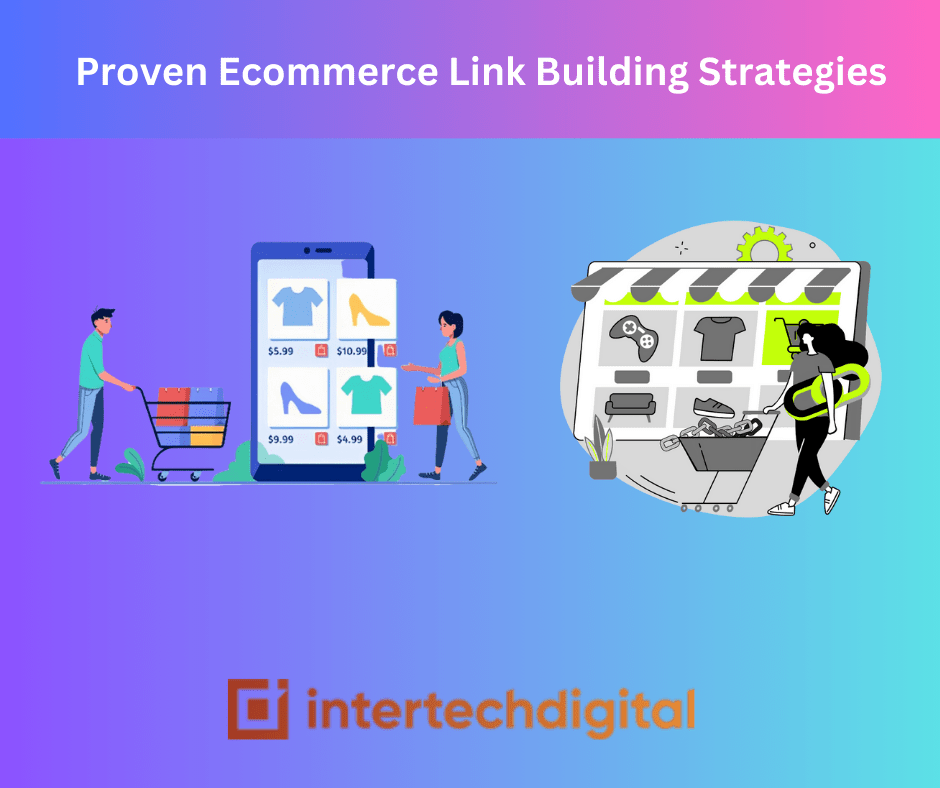
Proven Ecommerce Link Building Strategies
Guest Blogging
One of the best link building tactics for ecommerce is still guest blogging. By posting top-notch articles on authoritative blogs within your niche, you will easily garner backlinks for your ecommerce website. Here’s what you need to know about guest blogging:
- Identify Relevant Blogs: Use tools such as Ahrefs or SEMrush to find blogs accepting guest posts within your niche. Look for ones with high domain authority scores and active readerships.
- Pitch high-quality topics: Write compelling pitches aligned with their audience demographic or editorial guidelines but not self-promotion orientated pieces.
- Include Contextual Links: In the body of your guest posts, include contextual links leading back to your ecommerce site. Do not stuff articles with links, as this is against editorial guidelines.
Guest blogging builds links for ecommerce and positions you as a trusted expert in your field. It attracts traffic through referrals and increases brand awareness.
Influencer Collaborations
Collaborating with influencers is one of the most potent ways to get more ecommerce links. They create content about your products and link to you, improving reach and trust. Here’s how to leverage influencer collaborations for link building:
- Partner with Relevant Influencers: It could be beneficial to identify influencers who already have a huge online following within your niche. You can do this using tools such as BuzzSumo or NinjaOutreach.
- Create Joint Content: Product reviews, unboxing videos, tutorials, etc., are some examples of what can be done by working together with these influencers to create content that showcases your products.
- Negotiate Backlinks: When working with an influencer, ask them to include hyperlinks pointing back to your ecommerce website in their end products.
Influencer collaborations help build ecommerce links and increase brand visibility and credibility in the market.
Product Reviewing and Unboxing Videos
Product reviewing and unboxing videos effectively build backlinks, especially from bloggers and YouTubers. This is how you can apply this to your link-building campaign in ecommerce:
- Connect with Bloggers and YouTubers: Discover who the bloggers and YouTubers who regularly rate products in your market are. You could send them some of your goods for free in exchange for a review or a mention.
- Learn to encourage honest reviews. The importance of such opinions stems from their authenticity, which makes them more credible to their target audience and increases the possibility of engagement.
- Make it go viral: Publicize these reviews via your social media channels, linking back to the reviewer’s content, thereby creating a win-win situation.
This will help increase targeted traffic to your ecommerce website through high-quality backlinks and enhance SEO ranking and sales.
Broken Link Building
Link building that is not functioning but functional. The classic and effective way to construct ecommerce links is called Broken Link Building. Here’s how:
- Identify Broken Links: Use tools such as Ahrefs, SEMrush, or Check My Links to find broken links on relevant websites in your industry.
- Offer Your Content: Politely tell the site owner about the broken link. In addition, propose your content as a substitute and explain why it would be helpful for those who will read this.
- Follow up: If you don’t get a response after your first contact, send a follow-up email to increase your chances of success.
Broken link building is a very advanced ecommerce link building technique that helps you gain backlinks and allows you to develop relationships with other site owners in your field.
Resource Page Link Building
This is where you persuade other sites’ administrators to provide them with links leading to your particular page filled with valuable content. Here’s how you can use this strategy for your website:
- Find Resource Pages: Look for resource pages within your niche using search operators like “keyword + resources” or “keyword + useful links.”
- Create High-Quality Content: Ensure that the material you use is high-quality, informative, and perfectly matches the resource page aimed at here.
- Outreach to Site Owners: Approach the site owner whose resource page you want to add your content to because of its relevance. Be brief, and foremost, stress what value they will get from it.
Resource page link building can effectively drive targeted traffic and boost your site’s authority, mainly if your content is featured on high-traffic pages.
Leveraging Ecommerce-Specific Platforms for Link Building
Online Marketplaces (Amazon, Etsy, etc.)
Ecommerce link building can also occur via online marketplaces like Amazon and Etsy, primarily meant to sell products. Here’s how:
- Product Listings: Ensure that your product listings on these platforms are fully optimised with high-quality images, detailed descriptions, and relevant keywords. Where necessary, include links back to your ecommerce site.
- Storefront Links: Many marketplaces allow you to link back to your ecommerce website from your storefront. You should take advantage of this opportunity, as it drives traffic and improves your site’s authority.
Optimizing one’s presence in online marketplaces can be used as a source of traffic to one’s ecommerce website (URL) and possibly generating worthwhile backlinks.
Social Media and Social Bookmarking Sites
Ecommerce link building tactics often overlook social media platforms and bookmarking sites but can be particularly effective. Here’s how:
- Pinterest: Pinterest is a powerful platform for ecommerce, especially where products are visually appealing. Create pins with links to your product pages or optimized blog content.
- Reddit: Share valuable information on related Reddit communities while linking to your ecommerce site where appropriate. Follow the group’s rules to avoid raising suspicions.
- Social Bookmarking: Use sites like Digg, StumbleUpon, or Delicious to distribute content and create backlinks.
By leveraging social media and social bookmarking sites like Facebook or Twitter, for example, more people come across what you publish online, follow the links associated with them, visit your website(s), and do similar things that drive higher levels of traffic while also being crucial in attracting inbound links from other popular blogs.
Monitoring and analyzing your link building effort
Use SEO Tools
Your link-building effort must be monitored and analysed to understand what is working and the areas where you need to improve. These are some of the tools that can help:
- Ahrefs: Ahrefs is a complete search engine optimisation tool that enables you to track your backlinks, evaluate your link profile, and identify fresh opportunities for link building.
- Moz: Moz is among several SEO tools it has, with Link Explorer being one of them, which will assist in analyzing your backlink profile while tracking your link-building efforts.
- SEMrush: SEMrush gives insights into what makes up your backlinks, enabling monitoring of the quality and number of links provided over time.
You can monitor data and decide how to improve ecommerce link-building strategies through these tools.
Evaluating the Quality of Backlinks
Not all backlinks are made equal. Assessing whether the quality of acquired backlinks is good for one’s site is essential. Below are things to look for:
- Domain Authority: Backlinks from high authority domains are more valuable than low authority sites.
- Relevance: SEO is helped by links from websites relating topically to yours.
- Traffic Potential: Because they give exposure and bring more people directly onto your website, links from fantastic traffic sites can also increase visits to a website.
Therefore, it is necessary to regularly assess the relevance of one’s site’s backlink profile to spot bad links that might ruin its SEO performance.
Adjusting Your Strategy Based on Analytics
As with any other SEO strategy, you must adjust based on collected data. The following suggestions highlight how this can be done:
- Identify What’s Working: Using analytics, determine which link building strategies lead the most traffic and improve rankings so that such paths can be scaled up.
- Refine Underperforming Tactics: If specific strategies aren’t yielding the desired results, consider refining your approach or trying different tactics.
- Stay Updated on SEO Trends: Because the world of SEO never stops for anyone, you need to keep up with the latest trends and algorithm changes that matter to your link building efforts.
Regularly analyzing and modifying these ecommerce link building strategies will help you outstrip your competitors in the long run.
Conclusion
Ecommerce link building is a crucial part of an effective SEO strategy. By following the tips provided in this guide for linking to an e commerce website, such as through guest blogging, working with influencers, or broken link building, you can increase your site’s visibility, attract targeted visitors, and make more sales. However, remember that effective ecommerce linkages are evolving processes requiring constant monitoring and readjustments, not one-off attempts. Therefore, begin practicing these eCommerce linkage techniques to succeed online and achieve business objectives.
